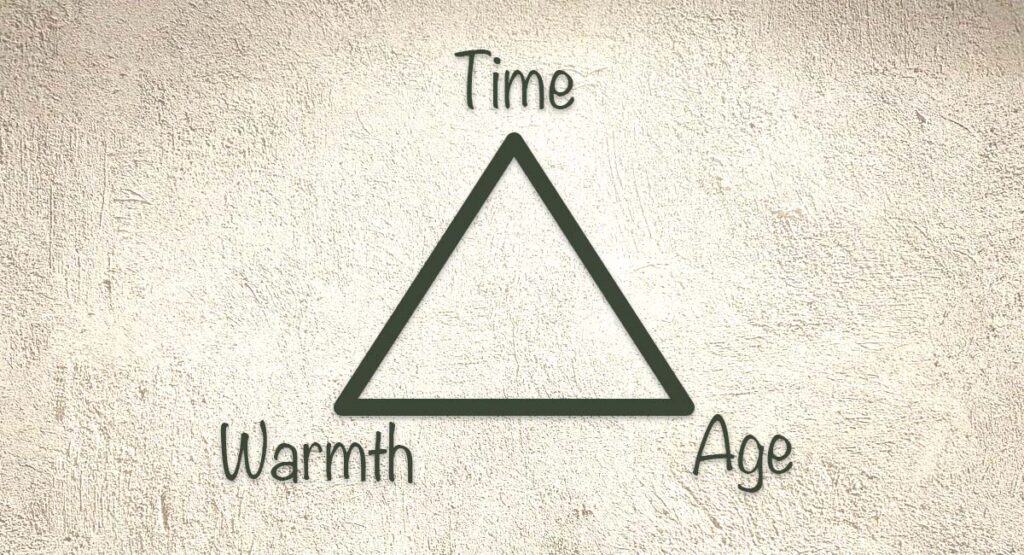The Influence Triangle: A Simple Way to Influence Your Children for Good
Parenting is hard, and it isn’t getting any easier. Christian families are confronted by a culture that is increasingly contradictory toward biblical values. In the face of such widespread…

Parenting is hard, and it isn’t getting any easier. Christian families are confronted by a culture that is increasingly contradictory toward biblical values. In the face of such widespread opposition, how can parents hope to raise godly children in America today? One answer lies in understanding how children are influenced.
Influence is a means of guiding someone toward a particular belief or behavior. Influence itself is neutral, like money, and can be used for either good or evil. The more that children are surrounded by good influences, the more likely they will move in good directions, and vice versa. One of the simplest ways to measure influence on children is through the influence triangle, which consists of time, age, and warmth. The more that parents increase these three qualities, or ‘points’ on the triangle, the more influence they will have with their children. Likewise, if parents want someone or something to have less influence on their children, they can decrease the points accordingly.
The first point of the influence triangle is time. With all else being equal, the more time that a child spends with someone, the more influence that person will have on the child. In Revolutionary Parenting, researcher George Barna found that effective parents spend significantly more time conversing with their children than do other parents. Time is also a factor for impersonal things like media and video games. The more time children spend consuming media, the more they will be influenced by it.
The second point of the triangle is age. The younger the child, the more easily they are influenced by the things and people around them. Like wet cement, it is easy to make a lasting impression on a young child’s life. As children age, their ‘cement’ hardens, and they become increasingly difficult to influence. In his research, Barna made the shocking statement that “the spiritual war occurring in individual lives is pretty much won or lost by the age of thirteen.” This sobering claim should motivate parents to provide a strong biblical foundation during the pre-teen years. Teenagers are not beyond hope, of course. While a parent’s ability to influence children may diminish with time, God’s ability never does.
The last point of the triangle deals with the amount of emotional warmth, or love, that a child feels. Children, like all people, are more easily influenced by individuals who care about them. The warmer a parent, teacher, or friend, the more influence they will have on a child. Even social media can capitalize on warmth by conflating “likes” with love and affirmation. Vern Bengtson, the lead researcher in a thirty-five-year study on religious transmission, concluded that parental warmth is key to passing on faith to children.
How do parents rate on the influence triangle? Kids tend to spend more time with their parents, from a younger age, and feel more warmth from their parents than from anyone else. Unsurprisingly, numerous studies have found that parents influence their children far more than anyone or anything else, even when compared to media and friends. Due to this strong influence, children generally mirror their parents’ religious commitments. Or, as researchers Smith and Denton put it in their book, Soul Searching, parents often “get what they are.” It is vital, therefore, that parents model Jesus within their homes.
In addition to leveraging their own personal influence, parents can and should use the variables of the influence triangle to support their children’s faith in other ways as well. For instance, making time for young children to interact with other godly men and women is both wise and biblical. Children are more likely to embrace Christianity, and to stick with it, when they are supported by a network of godly role models.
Conversely, parents should minimize negative influences that can shape their children’s worldviews. Day care, preschool, and elementary teachers are easily overlooked, and yet per the influence triangle can have nearly as much influence as parents themselves. These childcare workers can be tremendous allies when they reenforce biblical principles. However, if their views are suspect, they can unwittingly plant secular seeds in young hearts that may one day yield tragic fruit.
If a child’s teachers do not have a biblical worldview, then parents face a difficult choice. Should they allow their values to be subtly undermined or should they find an alternate form of education? Homeschooling is one alternative for parents who want to reinforce their values and beliefs. Local Christian schools can also be great partners in educating and discipling children. In either case, guiding young children toward Christ is of utmost importance, and wise parents can use insights from the influence triangle to do just that.



